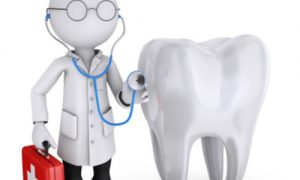A dental emergency kit can come in handy when we experience unexpected situations concerning our oral health. It is a requirement inside a dental office. Furthermore, the American Dental Association Council on Scientific Affairs decided what the dentist should include inside these emergency medical kits. But still, that depends on their state’s requirements. A dental emergency kit is usually tiny in size. At the same time, there would be a separate emergency medical kit for the employees and the patients.
Generally speaking, being prepared for medical emergencies can indeed save a life. It can help reduce the severity of the situation. On the other hand, not all conditions require immediate medical attention. Some of them may only require mild treatments on the spot. So, let’s keep digging into what these emergency medical kits are for and what we can see inside them.
Dental Emergency Medical Kits

Additionally, everyone inside the office must be responsible for looking after the emergency medical kit. That includes regular checking of the kit’s contents, which are already subject to replacement. Furthermore, all members must know how to use the contents if an emergency arises. This way, anyone can respond quickly.
Contents of a Dental Emergency Medical Kit
Meanwhile, we say that being prepared for medical emergencies is beneficial. That preparation includes securing the contents of the emergency medical kit. Given this point, below are the actual contents a dentist must have inside the medical emergency kit.
Medications
- Epinephrine: Auto-injector is essential for rapid, initial response.
- Albuterol: For asthma attacks.
- Diphenhydramine: They can use diphenhydramine for non-life-threatening allergies.
- Aspirin: They will use aspirin if they suspect myocardial infarction on the patient.
- Oral Glucose Gel: An oral glucose gel can help address blood sugar-related emergencies.
- Nitroglycerin: Nitroglycerin tablets or sprays can help relieve angina.
- Ammonia Inhalants: Ammonia inhalants can improve consciousness in a patient who fainted.
- Naloxone: It can help reverse the effects of opioids.
- Histamine blockers: It helps treat duodenal ulcers and are usually injectable.
Note: It is significant to check the expiration dates regularly. The shelf life of each medication requires proper monitoring.
Tools and Equipment
- Asthma Inhaler (Bronchodilator) or Albuterol Inhaler
- Blood pressure monitoring equipment
- CPR pocket mask
- Syringes
- Tourniquets
- High-volume suction and aspiration tips or tonsillar suction
Other Considerable Emergency Kit Supplies
A more extensive dental practice should include additional supplies other than what we mentioned above. Additionally, a general dental practice must be compliant with state regulations. That only means they prioritise the safety of the employees and their patients. It may include the following.
- Guidelines for emergency medical assistance
- Gauze pads
- Adhesive bandages
- Cleaning agents
- Scissors
- Blanket
- Tweezers
- Adhesive tape
There could be more supplies other than those stated above designed for the general dental practice. Each state may have different requirements, including the medications and other medical supplies necessary. In this case, each office should follow what the state requires of them.
Meanwhile, HealthFirst is one of the providers of medical emergency kits, including the SM series. They ensure that all the provided emergency kits align with the recommendations from the following: American Dental Association (ADA), Journal of the American Dental Association (JADA), and the HealthFirst Medical Advisory Board.
Dealing with Emergencies

Given this point, Emergency Dentist Adelaide is ready to serve you. We have experienced emergency dentists with sufficient training and education. Aside from that, we can offer any service to address the emergency and prevent the situation’s progression. We also have trained dentists who can handle pediatric and adult dental emergencies.
For this reason, please do not hesitate to give us a call at (08) 7078 8263. We would be happy to provide you with excellent service, emergency or not. You may contact us directly if you want to know more information about us. Aside from that, we also have a website where you can book your appointment hassle-free.
Always remember. A dental situation may subside through medications or pain relievers. However, it would be best to address the cause of the emergency directly.
References:
Emergency kit basics for dental practices, Cda.org, November 25, 2013, https://www.cda.org/Home/News-and-Events/Newsroom/Article-Details/emergency-kit-basics-for-dental-practices
Guidelines for Emergency Medical Kits for Dental Offices, Dr. Don Cohen, Accessed August 20, 2021, https://www.healthfirst.com/blog/guidelines-for-emergency-medical-kits-for-dental-offices/

